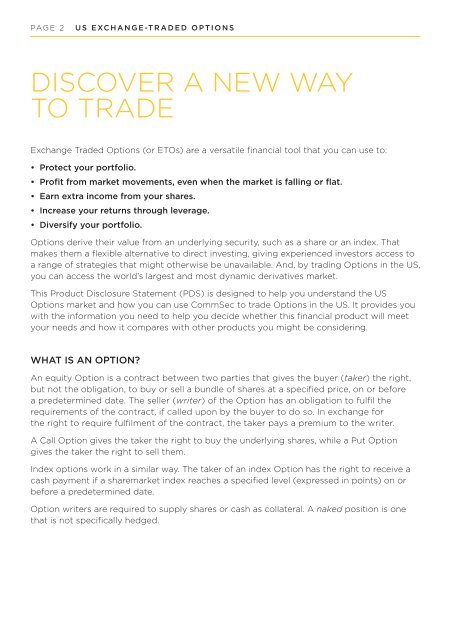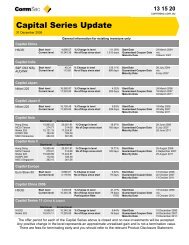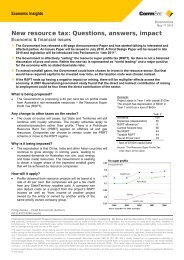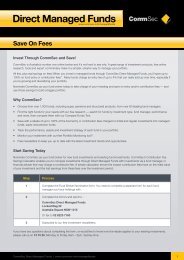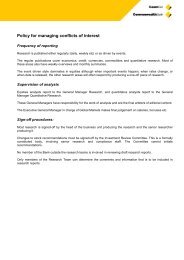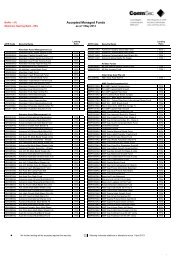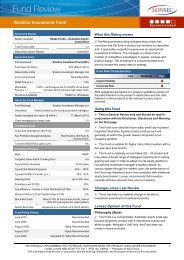US ExchangE- TradEd OpTiOnS prOdUcT diSclOSUrE ... - CommSec
US ExchangE- TradEd OpTiOnS prOdUcT diSclOSUrE ... - CommSec
US ExchangE- TradEd OpTiOnS prOdUcT diSclOSUrE ... - CommSec
Create successful ePaper yourself
Turn your PDF publications into a flip-book with our unique Google optimized e-Paper software.
pag e 2<br />
U S E xc h a n g e -t r a d e d o p t i o n s<br />
Discover a new way<br />
to trade<br />
Exchange Traded Options (or ETOs) are a versatile financial tool that you can use to:<br />
• Protect your portfolio.<br />
• Profit from market movements, even when the market is falling or flat.<br />
• Earn extra income from your shares.<br />
• Increase your returns through leverage.<br />
• Diversify your portfolio.<br />
Options derive their value from an underlying security, such as a share or an index. That<br />
makes them a flexible alternative to direct investing, giving experienced investors access to<br />
a range of strategies that might otherwise be unavailable. And, by trading Options in the <strong>US</strong>,<br />
you can access the world’s largest and most dynamic derivatives market.<br />
This Product Disclosure Statement (PDS) is designed to help you understand the <strong>US</strong><br />
Options market and how you can use <strong>CommSec</strong> to trade Options in the <strong>US</strong>. It provides you<br />
with the information you need to help you decide whether this financial product will meet<br />
your needs and how it compares with other products you might be considering.<br />
What is an Option?<br />
An equity Option is a contract between two parties that gives the buyer (taker) the right,<br />
but not the obligation, to buy or sell a bundle of shares at a specified price, on or before<br />
a predetermined date. The seller (writer) of the Option has an obligation to fulfil the<br />
requirements of the contract, if called upon by the buyer to do so. In exchange for<br />
the right to require fulfilment of the contract, the taker pays a premium to the writer.<br />
A Call Option gives the taker the right to buy the underlying shares, while a Put Option<br />
gives the taker the right to sell them.<br />
Index options work in a similar way. The taker of an index Option has the right to receive a<br />
cash payment if a sharemarket index reaches a specified level (expressed in points) on or<br />
before a predetermined date.<br />
Option writers are required to supply shares or cash as collateral. A naked position is one<br />
that is not specifically hedged.


